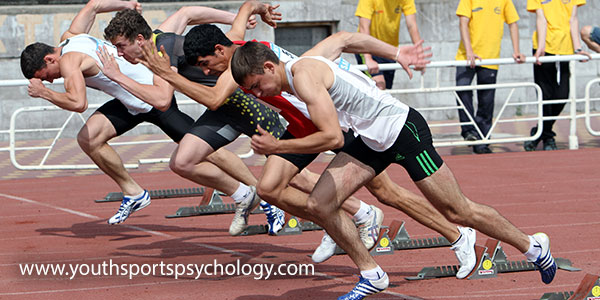Growth Mindset for Young Athletes
Rather than focusing on instilling fear to motivate athletes, parents need to create a safe training environment for them, says Pomai Miyata, MGCP, and sports performance consultant and founder of ICE Mental Game.
Fear-based training was common with old-school coaches and is often depicted in movies.
With this type of training, coaches yell at kids, compare them to others and shame and humiliate them, she told us during an interview on our Ultimate Sports Parent podcast.
“Unfortunately some of it is still around, some of it is coaches not being aware of what they are doing or exhibiting subtle behaviors. Most coaches and parents don’t mean to create this type of environment,” she says.
For example, coaches might try to encourage but inadvertently discourage young athletes. They might say, “You did this last week, you can do it this week.” Athletes might respond by thinking that something’s wrong with them. They get the wrong message.
Instead, coaches and parents should create a safe training environment that allows kids to adopt a growth mindset in which they’re curious and open, rather than fearful, says Miyata.
“A safe training environment is a place where students or athletes are able to foster a growth mindset. They are free to learn and feel it’s okay to fail and make mistakes. They need to take risks and not fear negative consequences,” she explains.
If kids have a closed mindset–often prompted by fear-based training– they tell themselves “I can’t do this, I won’t try any more,” Miyata says.
Not only should parents and coaches focus on creating a fun training environment. They should help their sports kids “get in the zone” by encouraging them to “be in their hindbrains.” While the frontal lobe is in charge of thinking, and often moves slowly, the hindbrain is responsible for fast action, based on intuition.
To help them get into their hindbrains, don’t give them lots of instructions…
Create a warm up routine that sets the tone for a game or competition. A warm up routine helps kids move away from thinking about the technical aspects of their game and click into the flow of sports, Miyata says.
Listen to the Ultimate Sports Podcast Below:
Related Articles on Kids’ Mental Game:
- The Benefits of a Growth Mindset in Youth Sports
- Helping Sports Kids Build a Growth Mindset
- Teaching Athletes to Feel The Pain of Failure with “Growth Mindsets” [Podcast]
*Subscribe to The Sports Psychology Podcast on iTunes
*Subscribe to The Sports Psychology Podcast on Spotify
Improve Your Mental Game From Anywhere In The World

We’re certain that, as a parent, you want to help your child develop confidence and discipline in sports and life. And as a sports parent, you’d love for your children to reach their potential in sports. But encouraging your child to strive for greatness without pressuring them can be a challenge.
You can get expert mental coaching with us from anywhere. Meet with us via Zoom, Skype, FaceTime or phone call. With today’s video technology, we are able to connect with athletes and coaches all over the globe.
Call Us Today to Schedule Your Free 15-Minute Session.
Find Out How Your Athlete Can Benefit From One-on-One Mental Coaching!

